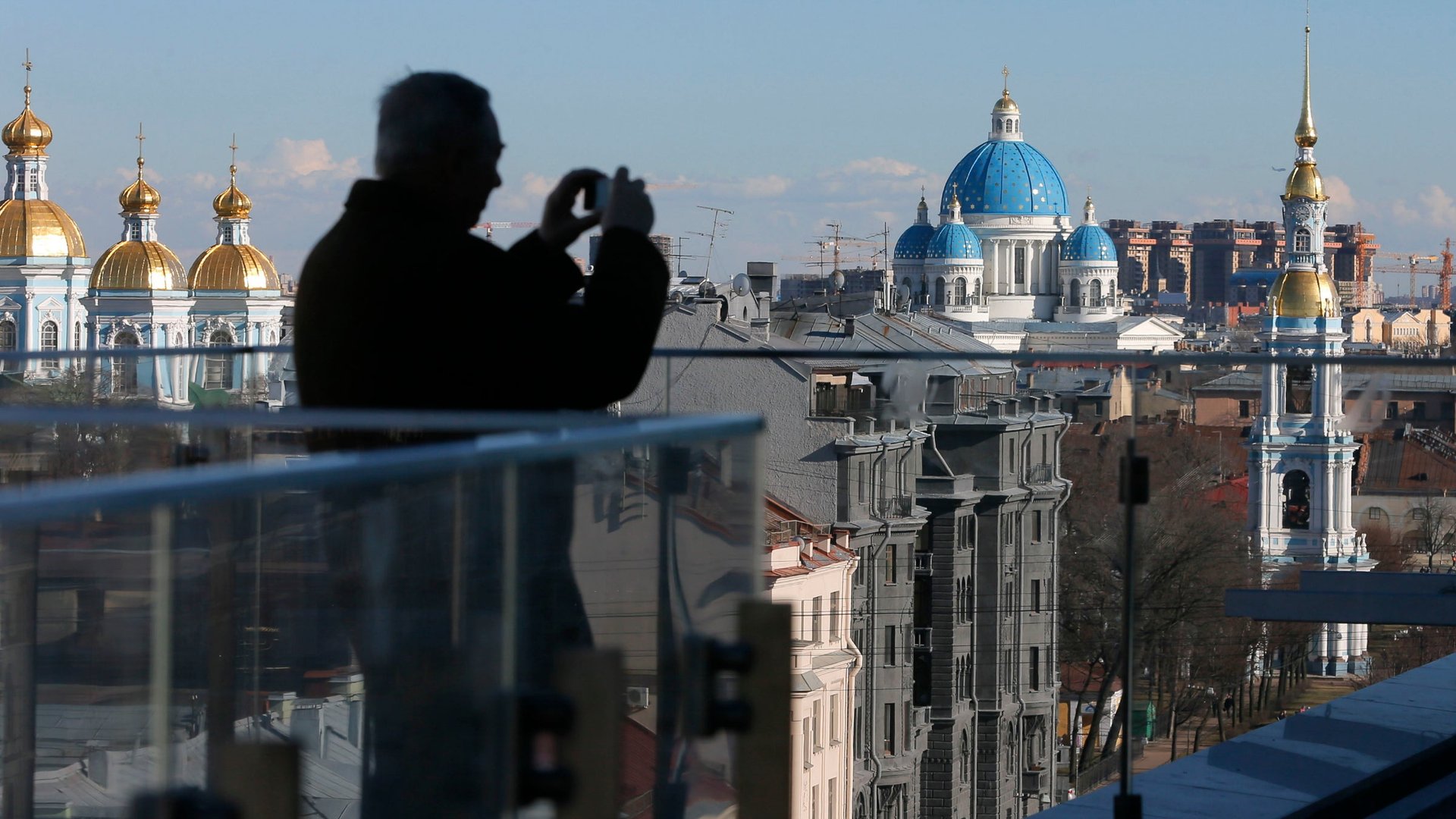St. Petersburg isn’t full of police and drunks, like the media would have you believe
For the first time in over 13 years, I travelled to Saint Petersburg. Going in with an open mind and few preconceptions, I was pleasantly surprised by much of what I saw. While the city still had some pretty shabby-looking quarters, the overall atmosphere was much more optimistic and positive than I had expected it to be given the media’s habitual presentation of Russia as a decaying and awful place. Three things in particular stood out to me: the relative lack of drunkenness, the ubiquity of consumerism, and the surprisingly light footprint of the authorities.


For the first time in over 13 years, I travelled to Saint Petersburg. Going in with an open mind and few preconceptions, I was pleasantly surprised by much of what I saw. While the city still had some pretty shabby-looking quarters, the overall atmosphere was much more optimistic and positive than I had expected it to be given the media’s habitual presentation of Russia as a decaying and awful place. Three things in particular stood out to me: the relative lack of drunkenness, the ubiquity of consumerism, and the surprisingly light footprint of the authorities.
1. The thing that stood out to me more than anything else was the almost total lack of public drunkenness. Yes, I was staying in a nice part of town and, no, I didn’t make an active effort to seek out the more rough and tumble districts, but in my four days in Petersburg I can’t recall seeing a single drunk sleeping on a bench or stumbling zombie-like through the streets. People who have been to Russia before will realize how extraordinary this is. I don’t think that Petersburg has suddenly discovered some sort of magic cure for alcoholism, I’m sure there were drunks somewhere in the city, but in previous trips to Russia it was impossible not to notice the alcoholics because they were everywhere. Near metro stations. In parks. Outside churches. Alongside rivers. Splayed out haphazardly on the sidewalk. You couldn’t walk for more than 10 minutes without seeing someone who looked like they came straight out of the most depressing pages of a Dostoyevsky novel. Based on health statistics, Russia has been making substantial, if long-overdue, progress in combating binge-drinking, and my time in Petersburg would seem to suggest that the statistical improvements are in line with real changes in behavior.
2. For all of the Russian media’s much-hyped “anti-Americanism,” (pdf) most of the stuff you see on TV and hear on the radio is not hysterical state propaganda but low grade consumerist schlock (created with obviously lower budgets). It seems banal to point out, but if you flip on the TV in Russia you’re far more likely to see ads blaring “free credit!” “no extra cost!” “huge discounts!” “low prices!” than you are a documentary on the perfidy of the United States and the evils of democracy. The overwhelming sense I got was that Russians, like consumers everywhere, are really keen both on saving money and on getting new stuff, and that TV is designed to cater to these needs. I suppose it’s possible that there is some sort of grand ideological project in the works, but it was conspicuously absent from the airwaves in Saint Petersburg. In short, I saw an awful lot of car commercials and even (strangely) a bunch of commercials for mozzarella cheese, but I didn’t really see anything that could even be charitably described as propaganda.
3. I was also struck by the small, indeed sometimes barely noticeable, police presence. I often walked for 15 or 20 minutes through the most crowded parts of the city without seeing a single officer, and the ones that I did come across were almost always in their cars looking decidedly bored and indifferent while texting on their smartphones. At one point I was walking through Palace Square and there were thousands of people watching two small rock concerts and some sort of break-dancing contest (really), but not a single police officer. Based off of everything I’ve read about the ongoing crackdown on the anti-Putin opposition, I was fully prepared to see hordes of riot police marching through the streets bashing people left and right, but the reality was, mercifully, quite a bit less dramatic and violent. Maybe all of the cops were all on vacation or maybe I was just there on a few days where things happened to be quiet, but the authorities just didn’t seem to have a very big footprint, something which frankly caught me by surprise.
Russia is obviously a much poorer country than the US, the difference in living standards is palpable even in a relatively affluent region like Petersburg, but I was actually left rather encouraged by the apparent normalcy and even banality of much of what I saw. Watching people walk along the street, pop into restaurants, and calmly go about their business hardly qualifies as high drama, but when you consider Russia’s tortured and tragic history you realize that the “normalcy” I witnessed is anything but.